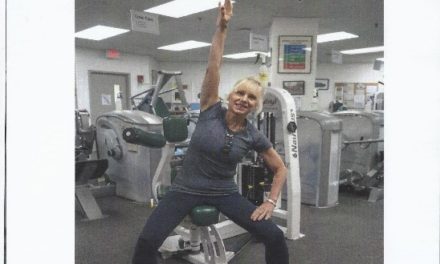By Susan Ovans
Lucy Wightman, the exotic dancer dubbed “the thinking man’s stripper” and “the socialite stripper” when, at age 18, she took Boston by storm in the late ’70s, has penned a memoir.
Boston-based Hamilcar Publications released the book, “Princess Cheyenne, My Life as Boston’s Most Famous Stripper,” on June 17, the day before its author celebrated her 66th birthday.
Wightman was born Louise Fitzgerald Johnson, the only child of an ill-fated union between a debutante determined to live by the lofty expectations of her wealthy social set and a Harvard grad Dad who had pedigree, but no real money and little ambition.
Lucy was whip-smart and willful from the start. Her parents were frequently startled, but never truly surprised by their daughter’s wayward path from the green pastures of Lake Forest, Illinois, and New Canaan, Connecticut, to Boston’s infamous Combat Zone, where she spent 11 years baring all at the Naked i Cabaret on lower Washington Street.
Her father, Wolcott Howe Johnson, known as Skipper, was nonchalant when his daughter became the literal poster child of the city’s adult entertainment district.
Her mother, Ellen Fitzgerald Reeves, was not amused. When she was dying in 2021, she gave reluctant approval to her daughter telling her story in print.
“You can write your book now,” Wightman, in a recent interview, laughingly recounted her mother telling her, “not that you wouldn’t do it [without approval], anyway.”
At the height of her Princess Cheyenne celebrity, Warner Brothers bought the rights to her life story. Wightman said she attempted to write a memoir then but, as she was only in her 20s, “I didn’t have any inner-selfness. I was too young. Also, I wasn’t as starstruck with myself.”
Audiences were certainly starstruck from the first time she – without shoes, without makeup, and clad in “Bloomingdale’s coordinated lingerie” that she haltingly shed – graced the Naked i’s Pussy Galore Stag Bar.
She embodied the “Nude College Girl Revue” promised in red capital letters on the club’s marquee. In short order that slogan was replaced by “FEATURE ATTRACTION PRINCESS CHEYENNE,” the first dancer that management heralded by name, promoting her nightly show times in bold-faced ads.
The petite blonde learned to apply makeup and strut in high-heeled boots. To complement the Princess Cheyenne moniker bestowed upon her by club management, she commissioned a bespoke costume designed by the legendary Hedy Jo Star and fashioned from lavish beadwork and ostrich feathers by Star’s husband, Buzzy.
Princess Cheyenne was just one of many alter egos Wightman assimilated with wit and style over the course of her career. Audiences – among them businessmen, construction workers, fishermen, and fetishists of all varieties – couldn’t get enough. Customers like detective writer Robert B. Parker and attorney Alan Dershowitz sought her company and her banter.
Dershowitz “wasn’t a regular, but he knew the owners and the club was like his local bar,” Wightman said. “He asked the most interesting questions, which is why I liked him so much.”
Wightman’s memoir counters the stereotypical depictions of a stripper’s life as sad, seedy, and dangerous. The Naked i’s management was “very protective” of dancers, she said. Customers “couldn’t be disrespectful and be a regular.”
Her 11-year career spanned 1977-1988. When Wightman arrived on the scene, the Sexual Revolution was in full swing nationwide. “I correlated being naked as nothingness,” she said. “I didn’t think of it as sexy. I spent summers with my father’s family at Blackstone Lake in Canada, where everyone except my mother took communal baths we called soapies. We dropped our towels on the dock, lathered up, and rinsed in the lake water.”
Wightman saw nudity as unexceptional, but her clamoring public was mesmerized. The local press paid court. Soon “The Princess” was enjoying local lunch dates at Legal Seafoods with Norma Nathan, who posted regular updates in her Boston Herald column. Wightman was seen gallivanting around town with Evening Magazine TV host Marty Sender and Boston-Boston nightclub owner Patrick Lyons.
She hosted a radio show on progressive rock station WBCN that cheerfully offered up sex and relationship advice, cheekily scheduled opposite sex therapist Dr. Ruth Wertheimer’s syndicated show on NBC. Wightman wrote articles for Boston Magazine and the Phoenix, the city’s iconic alternative weekly newspaper.
“I had a lot of fun,” she said. “It was all very positive. Even when the media poked fun at me, I didn’t really notice. The media was already writing their own story, anyway, perpetuating the story line about my toney background.”
The national press took note. Wightman made the pages of Playboy several times, although she was never invited to founder Hugh Hefner’s notorious mansion. She was a guest on Phil Donahue’s pioneering (and eponymous) daytime talk show, and on The Tomorrow Show with Tom Snyder, although she admits she didn’t know who he was.
“I worked nights and I didn’t own a TV then,” she shrugs and laughs.
Wightman laughs easily and wittily describes herself as “barely famous” for her Princess Cheyenne turns, but she was famous enough that rock star Cat Stevens broke their engagement in the pages of People magazine.
Wightman was a 16-year-old student when she first attended a Cat Stevens concert in New Haven. A month later, she staked out a Manhattan restaurant/bar and ended up sharing a bed at the Pierre Hotel with her rock idol.
In 1979, Wightman again challenged fate, traveling to Stevens’ London office, hoping to renew the acquaintanceship.
She was 19 and had been performing at the Naked i six nights a week for a year.
Stevens, a recently converted Muslim who had adopted the name Yusuf Islam, had given up secular music.
Improbably, the two fell in love and became engaged, although the relationship – as Wightman tells of it in her memoir – was less than idyllic.
Less than 90 days after he called off their engagement, Yusuf married a Muslim woman at a mosque in London.
In yet another strange twist of fate, Yusuf, who has resumed performing and now goes by Yusuf/Cat Stevens, is releasing his own memoir, “Cat on the Road to Findout” in October.
Wightman said she doesn’t know if he’ll include her in his autobiography. “Given his long-term marriage, he’d be wise to leave me out,” she said.
Asked what he’d think of his role in her book, she looked pensive. “It was always important to present himself in a good light. I was respectful of him, but I told my story. People can take from that what they will.”
The same week as his memoir is scheduled to be released, Stevens will be playing two shows at the Boston Wang Center.
Would she like to see him?
“I don’t know. He always said we would never be untethered, no matter what the future held.”
“The ties aren’t broken and never will be,” she quotes Stevens in her book.
Wightman’s mother found the singer-songwriter unsuitable for her daughter, protesting, “…you can’t marry a man with no sense of humor.”
Fortunately, she could never have the same complaint about the next famous man to claim Wightman’s heart: the comedian-performance artist Andy Kaufman.
Kaufman had found fame in 1975, during the first season of TV’s Saturday Night Live. He expanded his audience playing the character Latka Gravas on the hit sitcom Taxi from 1978 to 1983.
In 1981, Kaufman assumed a variation of that character’s persona to inveigle a meeting with “zee plencess” at the Naked i.
She had no idea who he was but agreed to meet him for lunch at the now-defunct Seventh Inn macrobiotic restaurant in Park Square.
Soon the pair were inseparable. In her book, Wightman recounts many madcap antics, indulging their love of movies, ice cream, and performance art, as well as his obsession with amusement parks.
“We spent the next four days touring Massachusetts to visit amusement parks: Lincoln Park in Dartmouth, Paragon Park in Hull, Whalom Park in Lunenburg, among others. We rode bumper cars, scramblers, tilt-a-whirls, carousels, and roller coasters. Each attraction was a fresh opportunity for mischief.”
The shared mischief came to an abrupt halt when Kaufman contracted an aggressive form of lung cancer. He died in 1984 at age 35.
“Princess Cheyenne” is not just Wightman’s story. It’s a tale of Boston writ large – people, places, events, sights, and even smells – over the course of a decade, told with assurance by a gifted narrator. (Wightman is a Mensa member whose IQ tested at 138.)
Writing the book was not fun, she says. “I wrote and wrote and wrote…” over the course of five years. “Once it became a story, I let go of expectations. I found my stride and my pace.”
She did enjoy the research, which “came easily and helped jog my memory.
“Memories can be different from reality, of course. But it’s honest and respectful.”
She recently saw some tapes of her shows, rare because cellphones did not exist when she was performing. “When I saw all the strobe lights, all the beautiful fabrics of the costumes, I got goosebumps.”
Unfortunately, she says, she does not have photographs of most of her iconic costumes, the Pink Panther and Wonder Woman, among them.
“If anyone does have them, I’d love to see them.”
With the publication of her book, she’s eager to share reminiscences and readers’ views. She’s also available for speaking engagements and can be contacted at princesscheyenne.com.
Having spent many years living on the South Shore “in all the H towns – Hanover, Hingham, Hull – as well as Scituate,” she now lives on Cape Cod.
Her book is available in both digital and print formats online at Amazon and Barnes & Noble.




